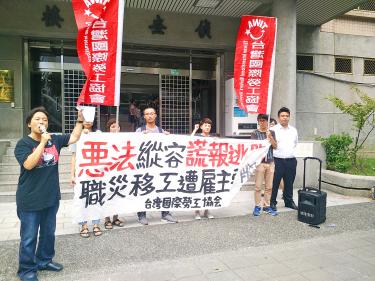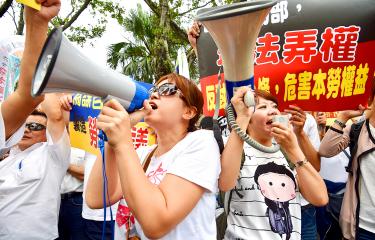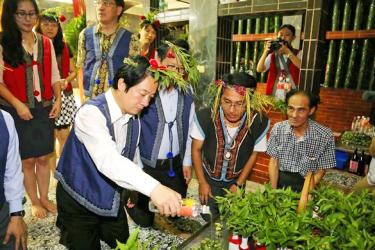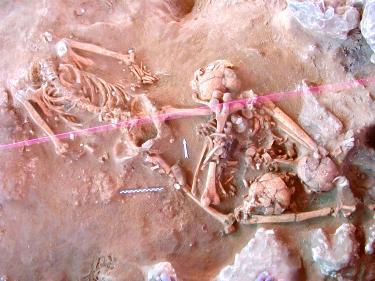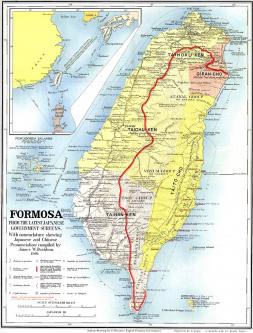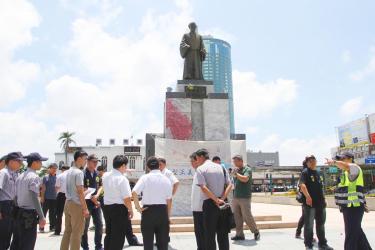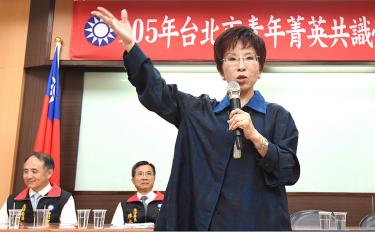Workers’ group protests against ‘runaway’ report
ABUSE OF THE SYSTEM:The Taiwan International Workers’ Association said a firm abused its legal rights by claiming a worker had absconded after he sued it
By Wang Ting-chuan, Chen Yi-yun and Jake Chung / Staff reporters, with staff writer
The Employment Service Act (就業服務法) gives companies too much power over their foreign employees, the Taiwan International Workers’ Association said on Wednesday as its members protested outside the New Taipei District Prosecutors’ Office in support of a Filipino migrant worker accused of absconding from his job.
The protest came after the man, whom the association referred to only as “F,” was detained on Tuesday night by police in Yonghe District (永和) after his employer reported that he had run away on Sept 22.
However, F, who suffered severe burns to one hand at work in February, had not run away; he was living in the company’s dormitory, the association said.
Article 56 of the act stipulates that if a foreign worker has been unjustifiably absent from their work and not in contact for three consecutive days, the employer should “notify in writing” the local competent authority, immigration officials and the police within three days.
According to the association, F began working in Taiwan in late December last year, and in February, as a result of inadequate factory safety measures, suffered a severe burn.
Since being injured, F had continued to live in the employee dormitory as he recuperated, with his employer paying him just NT$6,002 (US$190) per month.
F has sought the association’s help in filing a lawsuit against his employer for underpaying him, it said.
He was supposed to appear for the second hearing in his court case on Wednesday, but was detained by police on Tuesday night, the association said.
Association director Wu Ching-ju (吳靜如) said the company was fully aware that F was staying in its dormitory, but reported to police that he had run away.
F’s case reflects the amount of power the law gives employers, but such power is often abused by employers threatening workers to make them compliant, Wu said.
Migrant workers who have been listed as absconding are put at a great disadvantage in finding other work, as well as having limitations placed on their personal freedom, and it is very difficult to correct such records, compared with how easy it is for employers to make such accusations, Wu said.
The only ways such a “mark” can be expunged is if the former employer is willing to recant the accusation, or if the government investigates and determines that the foreign worker did not abscond, Wu said.
The association said it is now acting as F’s guarantor and on Thursday was able to move him into a temporary residence.
The Ministry of Labor said that if companies file a false report about a migrant worker, they could be fined between NT$300,000 and NT$1.5 million, and face a two-year restriction on hiring other foreign workers.
In such cases, the “runaway” label would be removed from a migrant worker’s records.
For a foreign worker to be considered a “runaway,” their employer must be unable to contact them for three consecutive days, the ministry said.
Even if a report of a “runaway” is filed with a police station or precinct, the police are only responsible for finding the missing person and will then release the worker into the employer’s care.
Additional reporting by CNA
